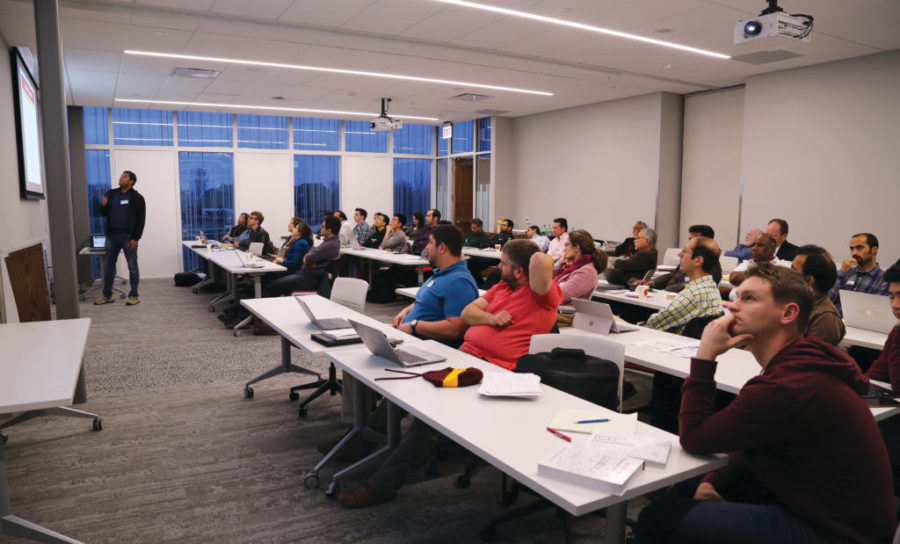Innovation Corps transitions research to products
Iowa State became an I-Corps Site in fall 2017. The program is a collaboration between the Office of the Vice President for Research and the Office of Economic Development and Industry Relations.
December 3, 2019
The National Science Foundation Innovation Corps (I-Corps) program is an initiative to transition National Science Foundation funded research from the laboratory to a product in the marketplace.
“The National Science Foundation (NSF) I-Corps program prepares scientists and engineers to extend their focus beyond the university laboratory and accelerates the economic and societal benefits of NSF-funded, basic-research projects that are ready to move toward commercialization,” according to the National Science Foundation website.
Through I-Corps, NSF grantees learn to identify product opportunities that can emerge from academic research, and gain skills in entrepreneurship through training in customer discovery and guidance from established entrepreneurs.
Iowa State became an I-Corps Site in fall 2017. The program is a collaboration between the Office of the Vice President for Research and the Office of Economic Development and Industry Relations.
“I-Corps Sites nurture and support multiple, local teams to transition their technology concepts into the marketplace,” according to the National Science Foundation website. “The Sites provide infrastructure, advice, resources, networking opportunities, training and modest funding to enable groups to transition their work into the marketplace or into becoming I-Corps Team applicants. Sites are single-institution efforts to support innovation locally.”
I-Corps Sites act as a training ground for faculty, postdoctoral, graduate and undergraduate students to learn how to increase the impact of their research by exploring the commercial potential of their research and technology.
“Iowa State’s I-Corps Site program aims to embed a stronger and more pervasive culture of entrepreneurship and innovation across the entire campus community,” according to the Iowa State I-Corps website. “The Iowa State I-Corps Site focuses on translating discoveries that reflect its strengths in engineering, biorenewables, materials science and agriculture, food and nutrition, and veterinary medicine.”
The four-week curriculum focuses on customer discovery to support the transition of ideas, devices, processes or intellectual activities into the marketplace. This can be realized through the formation of new start-up businesses, licensing agreements or identifying funding sources to support additional research.
Thirty teams are selected through a competitive process each year. Each team consists of at least an entrepreneurial lead who is a graduate student or post-doc, an academic lead who is a faculty member or other qualified scientist and mentor who is an experienced or emerging entrepreneur.
There is a limit of five members per team and academic leads may participate on only one team per cohort.
Participation in all sessions by the academic lead and entrepreneurial lead is mandatory for those teams who are selected. Participants are encouraged to include an undergraduate student as a second entrepreneurial lead.
In addition to offering industry exposure and entrepreneurial training for participating teams, the Iowa State I-Corps Site provides advice, resources, networking opportunities and infrastructure for exploring commercialization opportunities. I-Corps works with entrepreneurial endeavors at Iowa State, including the infrastructure and resources at Economic Development and Industry Relations, such as the Iowa State Startup Factory.
To apply to participate in the Iowa State I-Corps Site program, complete the online application. Selected applicants will be invited to participate in a review panel to make final determinations of cohort members.
Teams that are accepted into the program and participate in all sessions are eligible to receive a microgrant of up to $3,000 to support customer discovery efforts.

















